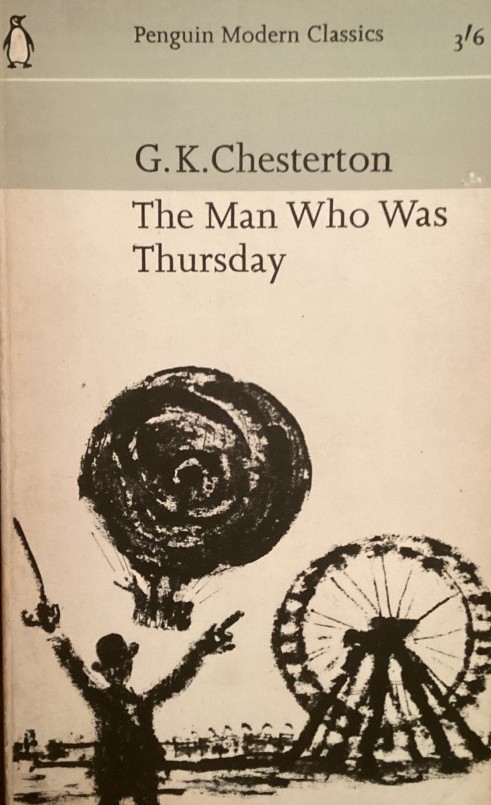Inspiring Older Readers
 posted on 31 Oct 2023
posted on 31 Oct 2023
The Man Who Was Thursday by G.K. Chesterton
Europe at the turn of the 19th into the 20th century was a place of political ferment. Revolution and fear of revolution was in the air, challenging the complacent orthodoxy of the ‘long Edwardian summer’ and sparking something of a moral panic. At the heart of this was the shadowy figure of the ‘anarchist’, political activists prepared to use violence (especially bombing and assassinations) to press their case for political change.
It might come as something of a surprise to discover that the rather staid establishment figure of G.K. Chesterton would be the writer to use this anarchistic environment as a platform from which to launch one of the most experimental novels of the 20th century. Lots of claims have been made for The Man Who Was Thursday and, extraordinarily, most of them seem to be merited. I can do no better than quote the short review written for The Guardian by Simon Hammond in 2012 when he says:
“The novel is a raucous carnival of genres: thriller, farce, detective story, dystopia, fairy tale and gothic romance. It can be read as a philosophical treatise or a fraught expression of religious conviction but above all it is gloriously entertaining.”
The book starts with Lucian Gregory holding forth about the need for change through anarchy until he is challenged by a newcomer, Gabriel Syme who accuses him of being a poseur. Gregory seeks to prove to Syme that he’s the real thing by taking him to as secret meeting of the Anarchist Council, headed by the powerful but mysterious Sunday. The Council comprises of men who are all named after days of the week and Syme finds himself being elected – much to Gregory’s chagrin - as a new member of this hierarchy, replacing the departed Thursday.
But Syme is no anarchist. He is, in fact an undercover policeman and he now finds himself in a position to meet the mysterious Sunday and the other anarchists who meet ‘in plain sight’.
Chesterton subtitles this book ‘A Nightmare’ and it becomes easy to see why as the plot swings into full blown surrealist mode and, one by one, the Anarchist Council is revealed to consist of no anarchists at all – every one of them is a policeman or police informer. And, it transpires that all of them are being manipulated by the extraordinary Sunday – who sees to be ordering the whole fiasco.
A strange, even surreal, conclusion hurtles along as Sunday leads the policemen on a chase across London that includes an elephant and a hot-air balloon. The whole menagerie culminates on Sunday’s country estate where the pursuing police end up sat on thrones and in fancy dress that is appropriate to their day of the week.
And, as Hammond notes in his review:
“The novel increasingly revels in the disorder of dreams. Chesterton's great achievement is to imbue the everyday world with wonder; everything becomes exotic and fantastical. His portrayal of London in particular is an enchanting evocation of the modern metropolis – the city is rendered as a psychedelic wonderland, as both an ocean and a mountain range, as both the depths of hell and the unexplored surface of a foreign planet.”
Some critics have seen this as some kind of religious allegory (although it was written well before Chesterton’s conversion to Catholicism) in which Sunday becomes the ‘Lord of creation’.
Ultimately, to be successful the book has to be more than just plain odd and it’s the humour that keeps the story’s head above water. I have to admit that reading it was both a lot more – but oddly – also a lot less than I expected and that made it quite an experience.
Paperback copies are easily available and can be found for well under £10.
Terry Potter
November 2023